Climate Change is Decimating the Chinstrap Penguins of Antarctica
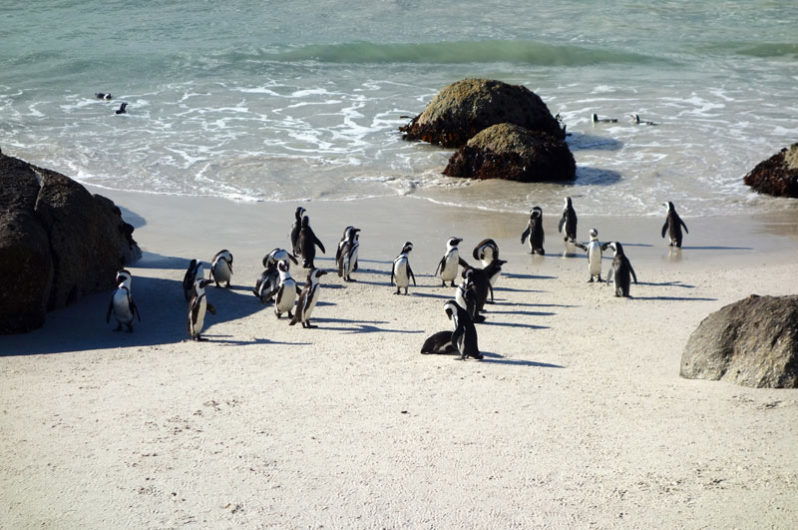
Scientists conducting a chinstrap census along the Antarctic Peninsula have discovered drastic declines in many colonies, with some seeing population reductions of up to 77% since they were last surveyed, about 50 years ago
Scientists listen to whales, walruses and seals in a changing Arctic seascape
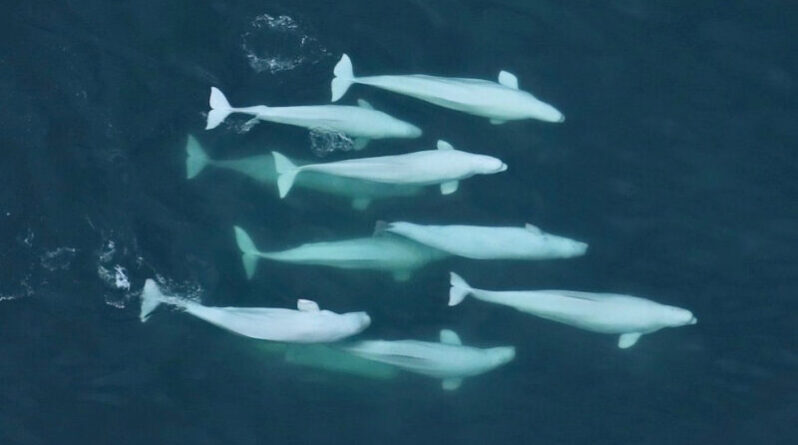
A year-round acoustic study of marine mammals in the northern Bering Sea is providing scientists with a valuable snapshot of an Arctic world already under drastic pressure from climate change.
Marine Heat Wave Linked to Sharp Increase in Whale Entanglements
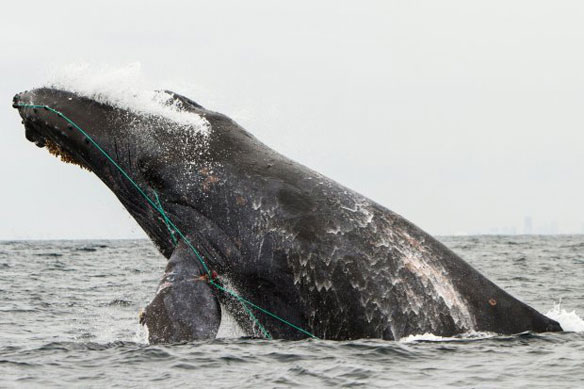
An ocean heat wave off the U.S. West Coast from 2014 to 2016 drove humpback whales into a narrow band of cooler water, leading to a dramatic increase in whale entanglements with crab-fishing gear, according to a new study.
The ‘Blob,’ a massive marine heat wave, led to an unprecedented seabird die-off
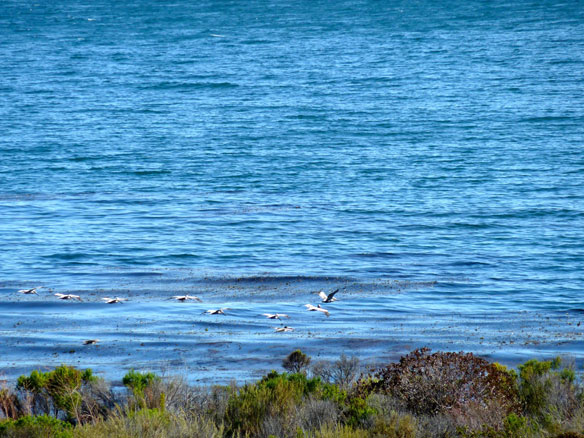
From 2015–2016, 62,000 dead common murres washed onto U.S. and Canadian Pacific coast beaches. All together, an estimated 10 to 20 percent of the region’s total population was wiped out.
Global warming cited as Antarctica’s chinstrap penguin population drops by half

The numbers have dropped across the region as average temperatures have soared by more than five degrees over 50 years. That increase is about five-times the global average.
Why do ocean animals eat plastic?
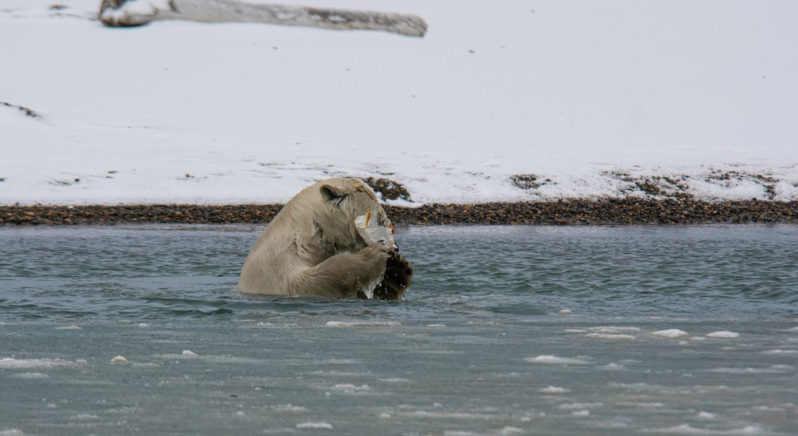
Why would an apex ocean predator eat gloves? Or rope? Or plastic cups? How does a whale end up with more than 200 pounds of waste in its stomach?
Beached sperm whale found with 220 pounds of trash in his stomach
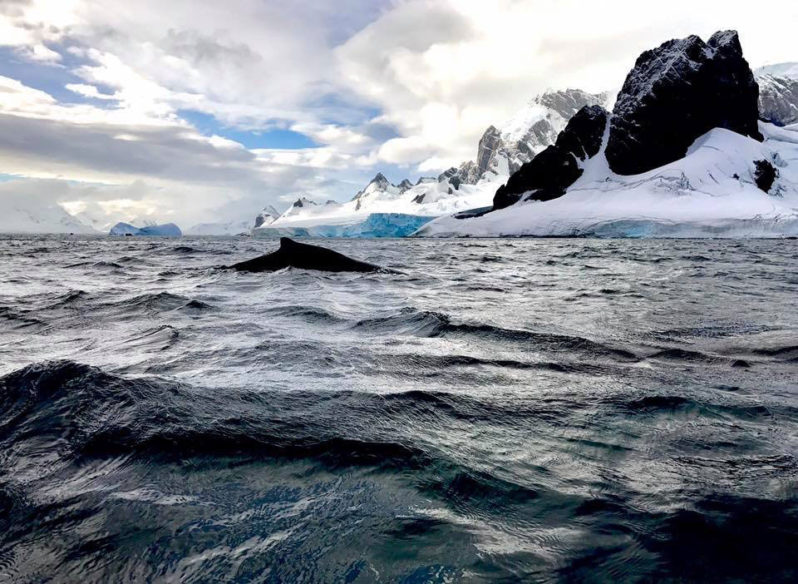
A sperm whale that washed up on a beach was found with 220 pounds of plastic trash in his stomach. The whale beached itself and died on a northern Scottish island.
South Atlantic humpback whales have rebounded from near extinction
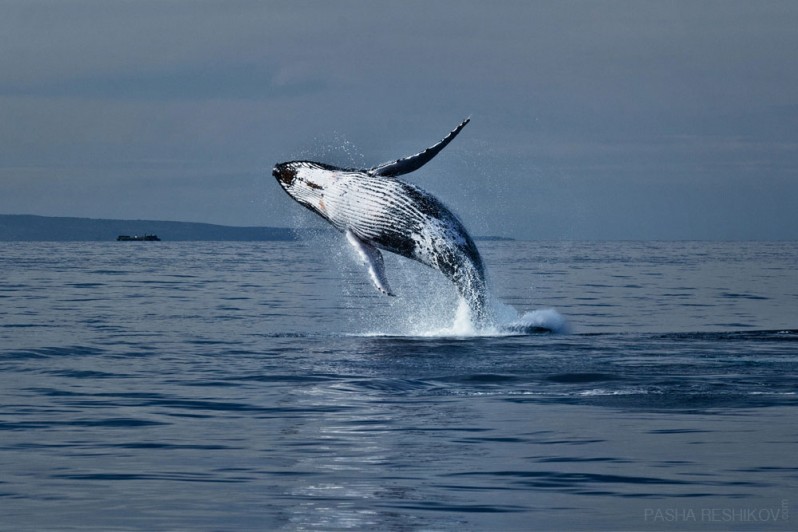
After being hunted nearly to extinction in the early 20th century, a population of humpback whales in the southern Atlantic Ocean has almost entirely recovered, according to a new study.
Scientists rush to rescue sea turtles threatened by mysterious Brazil oil spill
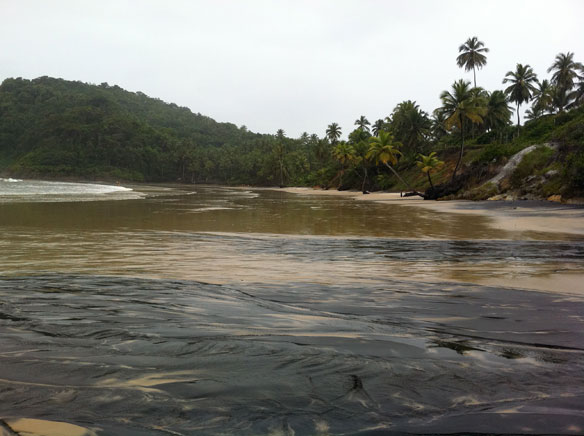
Crude oil has been washing up along a 1,200-mile stretch of coastline of the Brazilian northeast for over a month, leaving more than 150 of Brazil’s postcard-perfect beaches covered in thick, sludgy black patches. It is also along this coastline that olive ridley and loggerhead sea turtles come to make their nests and lay their eggs.
